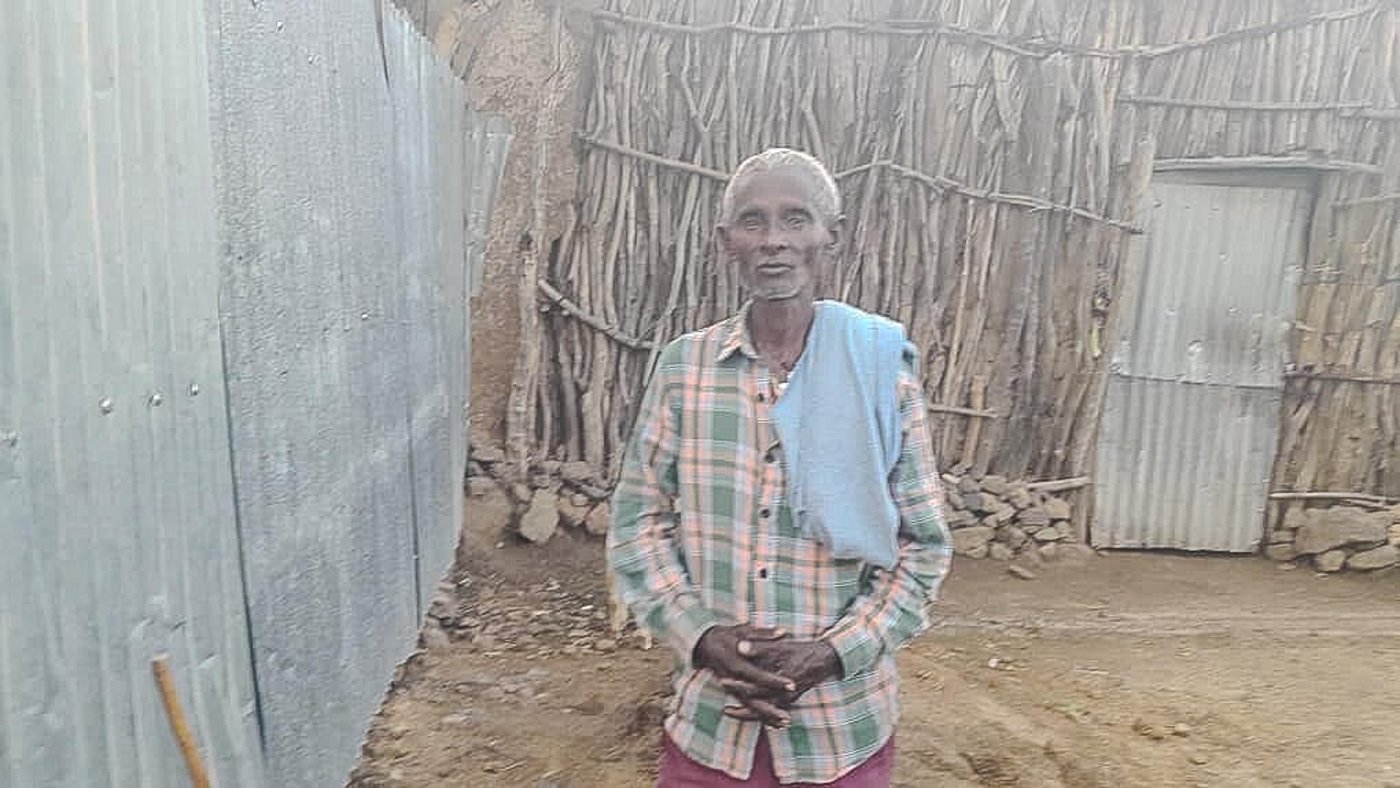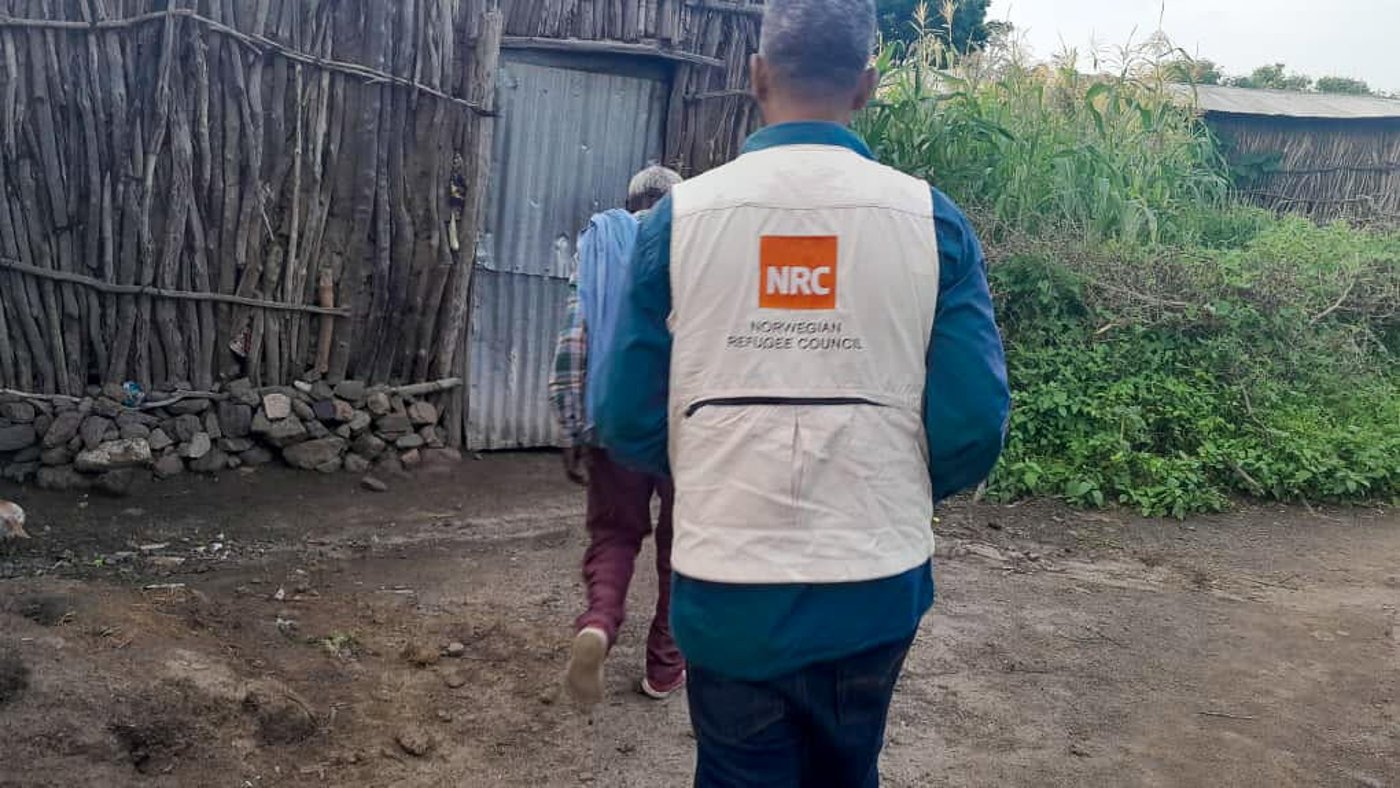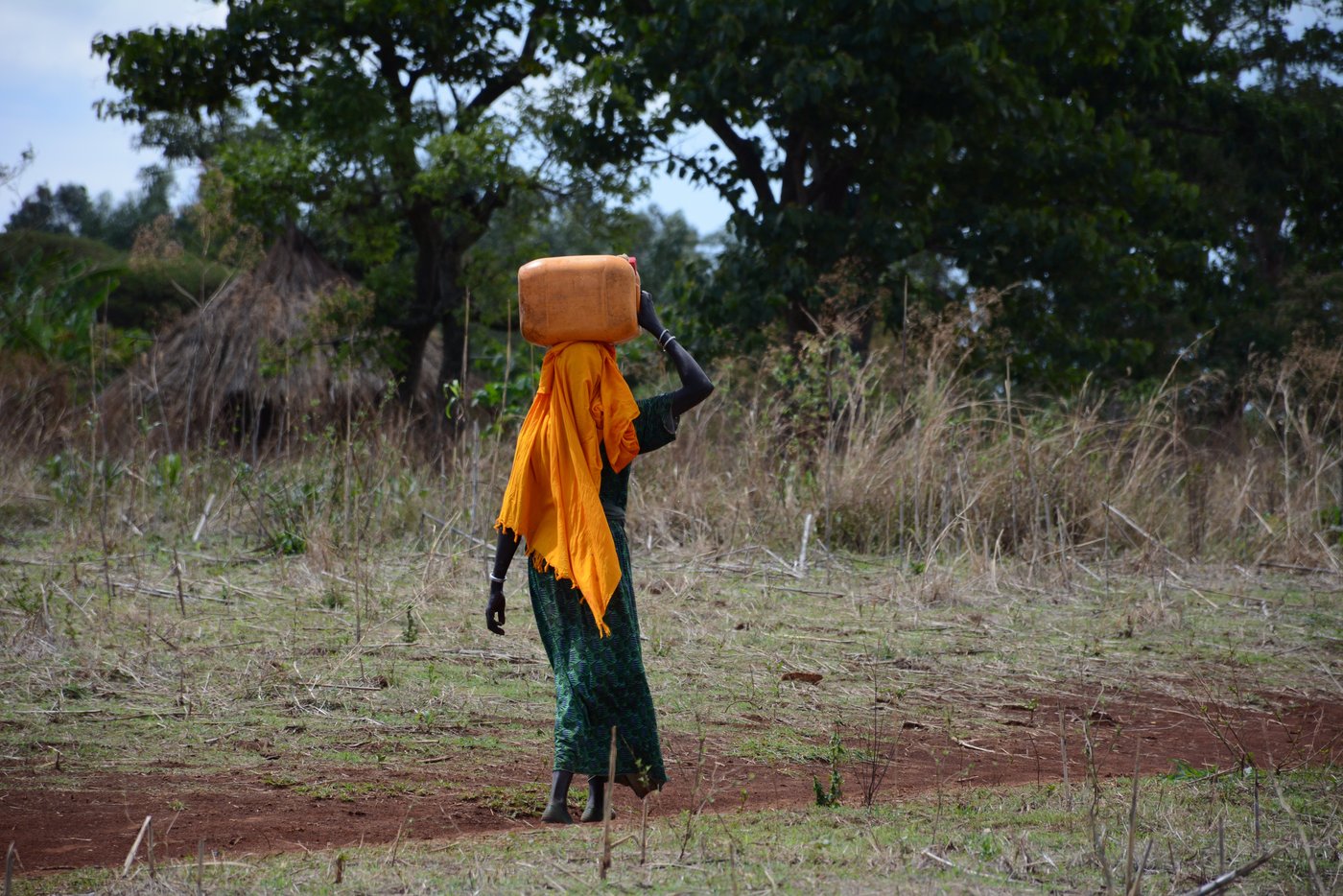In Adi-Goshu, a remote village caught between the Tigray and Amhara regions, the gunfire has stopped, but the suffering continues.
The two-year war left behind shattered homes, lost livelihoods, and families torn apart. For many, peace has not yet brought relief. They are still struggling to survive in isolation, far beyond the reach of aid and services.
Among those rebuilding their lives are Ayenew Alemeshet, a 67-year-old farmer, and Tarik Yeshane, a 70-year-old grandmother. Thousands of families across northern Ethiopia are surviving with limited means and little help, except for small but vital support from the NRC.

A father's daily struggle
Each morning, Ayenew locks the door of his fragile shelter and leaves for work. Inside, his daughter Timnit, 15, waits alone on a rope bed. She cannot walk or speak.
“She was healthy as a child,” Ayenew says. “Then one day she fell sick and never stood up again.”
After her mother’s death, Timnit’s condition worsened. With no access to healthcare, Ayenew became her only caregiver. Yet, poverty forces him to leave home each day, walking for hours in search of daily labour to earn enough to feed his children.
“When I go, I leave her alone. When I come back, I find her crying,” he says. “Sometimes I have no strength left to comfort her.”
Each evening, he returns home with a small bag of flour or lentils, just enough to keep his family going.
Vital cash assistance
With support from Norwegian Agency for Development Cooperation (Norad) and Swedish International Development Cooperation Agency (SIDA), through NRC’s multi-purpose cash assistance, Ayenew now has a reliable source of income. This support enables him to prioritise his family’s most pressing needs whether it’s food, medicine, or small comforts for Timnit.
This flexible assistance gives families like Ayenew’s choice, helping them meet their most urgent needs in an unpredictable environment.

Living in darkness
A few kilometres away, Tarik Yeshane, 70, sits quietly outside her mud-walled home. A mother of two and once a proud provider, she now lives alone and in total darkness.
Tarik lost her sight during the war. It has been five years since she last saw her children. She has heard that one fled to Sudan and the other to central Tigray, but she does not know if they are alive.
“I have no food at home. I am starving,” she says softly. “Sometimes neighbours share what they can, but they are struggling, too.”
Recently, Tarik received 10,000 birrs [USD 64] in cash support from NRC. The money allows her to buy food and meet her most urgent needs. For her, it means survival and a small measure of independence.
A region left behind
Across northern Ethiopia, many communities remain cut off from essential services. In contested areas like Adi-Goshu, there have been no schools, clinics, or functioning water systems for five years. Roads are unsafe, trade is restricted, and humanitarian access remains limited.
Thousands of families face similar struggles. The elderly, the sick, and people with disabilities are among the hardest hit. They are trapped by insecurity and are unable to flee.
NRC continues to provide multi-purpose cash and other forms of assistance, helping families recover and rebuild their lives.
Ethiopia is one of the world’s most neglected displacement crises. It may not make the headlines, but the needs are urgent. Share this story and help shine a light on the world's neglected displacement crises. Your voice matters when others remain silent.
Sign up to our newsletter to read more stories from around the world.


